June 7 stands as one of history’s most eventful days, witnessing the rise and fall of empires, groundbreaking discoveries, and moments that shaped our modern world across centuries of human achievement.

Politics and Government Events on June 7
1905 – Norway’s Parliament Dissolves Union with Sweden
Norway’s parliament voted to dissolve its union with Sweden, marking a pivotal moment in Scandinavian history. The bold decision demonstrated Norway’s determination to achieve full independence after decades of Swedish rule.
A national plebiscite later confirmed this historic choice on August 13 of the same year. The peaceful separation established a new model for national self-determination in modern Europe.
1929 – The Lateran Treaty Ratified

The Lateran Treaty received official ratification, bringing Vatican City into existence as the world’s smallest sovereign state. Pope Pius XI and Italian leader Benito Mussolini formalized this historic agreement between church and state.
The treaty resolved the “Roman Question” that had persisted since 1870. Vatican City’s creation established the Pope’s temporal sovereignty over 121 acres in the heart of Rome.
1948 – Edvard Beneš Resigns as President of Czechoslovakia
President Edvard Beneš resigned rather than sign the Ninth-of-May Constitution, which would transform Czechoslovakia into a Communist state. His principled stand represented the last democratic resistance to Soviet influence in the region.
Beneš chose exile over complicity in his nation’s transformation. His resignation marked the final end of democratic governance in Czechoslovakia until the Velvet Revolution decades later.
1965 – Supreme Court Decides Griswold v. Connecticut
The Supreme Court delivered its landmark decision in Griswold v. Connecticut, prohibiting states from criminalizing contraception use by married couples. The ruling established privacy rights as a fundamental constitutional principle.
Justice William Douglas wrote the majority opinion establishing the “right to privacy” in intimate matters. This decision laid crucial groundwork for future reproductive rights cases including Roe v. Wade.
1981 – Israeli Air Force Destroys Iraq’s Osiraq Nuclear Reactor
Israeli fighter jets executed Operation Opera, destroying Iraq’s Osiraq nuclear reactor in a precision strike. The daring mission prevented Saddam Hussein from developing nuclear weapons capabilities.
Eight F-16 Fighting Falcons flew deep into Iraqi airspace to complete the mission. The attack sparked international controversy while effectively ending Iraq’s nuclear weapons program for decades.
2000 – United Nations Defines Blue Line Border
The United Nations officially defined the Blue Line as the border between Israel and Lebanon. This demarcation aimed to reduce tensions and establish clear territorial boundaries in the volatile region.
UN peacekeepers worked extensively to map and mark the precise border coordinates. The Blue Line became a crucial reference point for maintaining stability in southern Lebanon.
Military and Naval History on June 7
1917 – Battle of Messines Ridge
Allied forces detonated massive mines underneath German trenches at Messines Ridge, killing 10,000 German troops instantly. The explosions created the largest man-made blast in history until the atomic age.
British and Canadian miners had spent months digging tunnels and placing explosives beneath enemy positions. The devastating attack opened a crucial breakthrough in the Western Front’s trench warfare stalemate.
1942 – Battle of Midway Ends in American Victory
The Battle of Midway concluded with decisive American victory over the Imperial Japanese Navy. Admiral Chester Nimitz’s forces sank four Japanese aircraft carriers while losing only one American carrier.
This triumph marked the turning point of the Pacific War. Japan’s naval aviation capabilities never recovered from the catastrophic losses sustained during the four-day battle.
1942 – Japanese Forces Occupy Aleutian Islands
Imperial Japanese soldiers began occupying the American islands of Attu and Kiska in Alaska’s Aleutian chain. This marked the first foreign occupation of American territory since the War of 1812.
The invasion diverted American resources from the Pacific theater’s main campaigns. Japanese forces would maintain their Aleutian foothold for over a year before American counterattacks reclaimed the islands.
1944 – SS Division Hitlerjugend Massacres Canadian Prisoners
Members of the SS Division Hitlerjugend murdered 23 Canadian prisoners of war at Ardenne Abbey during the Battle of Normandy. The war crime violated international laws protecting captured soldiers.
The massacre occurred just days after D-Day landings when tensions ran highest. Canadian forces later captured and prosecuted several perpetrators for these heinous war crimes.
Science and Discovery Milestones on June 7
1991 – Mount Pinatubo Erupts

Mount Pinatubo in the Philippines erupted violently, generating an ash column reaching 7 kilometers into the atmosphere. The massive eruption marked the beginning of one of the 20th century’s most significant volcanic events.
Scientists had been monitoring increasing seismic activity for weeks before the eruption. The volcanic explosion would eventually affect global weather patterns and temperatures for several years.
1909 – Virginia Apgar Born

Virginia Apgar entered the world destined to revolutionize newborn care through her groundbreaking medical innovations. Her childhood curiosity about science foreshadowed her future contributions to pediatric medicine.
Apgar would later develop the Apgar Score, a simple test that saved countless newborn lives. Her assessment method became standard practice in delivery rooms worldwide, dramatically improving infant mortality rates.
1954 – Alan Turing Dies
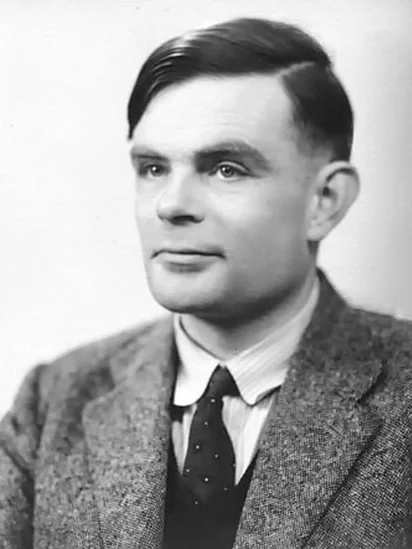
Alan Turing, the brilliant English mathematician and computer scientist, died tragically at age 41. His revolutionary work on computation and artificial intelligence had laid the foundation for the modern computer age.
Turing’s contributions to breaking the Enigma code during World War II remained classified for decades. His theoretical work on machine intelligence continues to influence computer science and artificial intelligence research today.
Cultural and Arts Events on June 7
1946 – BBC Returns to Television Broadcasting
The BBC resumed television service after a seven-year hiatus caused by World War II. British audiences eagerly welcomed back the visual medium that had been suspended during the conflict.
The restoration of television broadcasting signaled Britain’s return to peacetime normalcy. BBC’s programming resumption helped launch the golden age of British television entertainment.
1955 – Lux Radio Theatre Signs Off Permanently

Lux Radio Theatre broadcast its final show, ending a remarkable 21-year run featuring radio adaptations of Broadway shows and popular films. The program had launched in New York in 1934 and became radio’s most prestigious dramatic series.
Hollywood stars regularly appeared on the show, bringing their film roles to radio audiences. The series’ conclusion marked the end of radio’s golden age as television rapidly gained popularity.
1982 – Priscilla Presley Opens Graceland to Public

Priscilla Presley opened Graceland to public tours, transforming Elvis Presley’s Memphis mansion into a pilgrimage site for fans worldwide. The bathroom where Elvis died five years earlier remained strictly off-limits to visitors.
The mansion’s opening created a new form of celebrity tourism. Graceland quickly became one of America’s most visited private homes, generating millions in revenue while preserving Elvis’s legacy.
1977 – Queen Elizabeth II’s Silver Jubilee Televised

Five hundred million people worldwide watched Queen Elizabeth II’s Silver Jubilee celebrations on television. The massive global audience demonstrated the monarchy’s enduring appeal and television’s power to unite viewers across continents.
The jubilee festivities showcased British pageantry at its finest. The televised celebration marked one of the largest shared viewing experiences in broadcasting history.
Religious and Social Events on June 7
1919 – Sette Giugno Riots in Malta
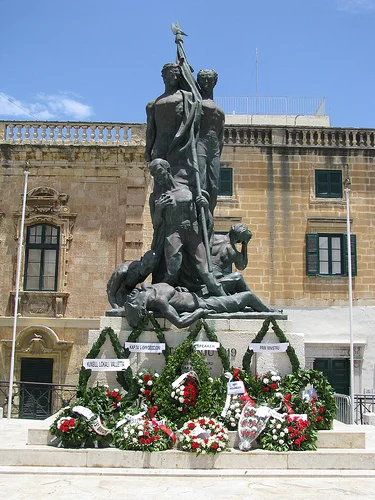
Nationalist riots erupted in Valletta, Malta’s capital, as local residents protested British colonial policies. British soldiers fired into the crowd, killing four Maltese civilians and intensifying anti-colonial sentiment.
The tragic events became known as Sette Giugno, marking a turning point in Malta’s struggle for independence. The incident galvanized Maltese nationalism and accelerated demands for self-governance.
1948 – Anti-Jewish Riots in Morocco

Anti-Jewish riots broke out in the Moroccan cities of Oujda and Jerada, reflecting rising tensions in the region. The violence targeted Jewish communities during a period of increasing political instability.
These incidents occurred amid broader Middle Eastern conflicts following Israel’s establishment. The riots contributed to the eventual exodus of Jewish populations from North African countries.
1971 – Paul Cohen’s Free Speech Victory
The Supreme Court overturned Paul Cohen’s conviction for disturbing the peace, establishing that vulgar writing receives First Amendment protection. Cohen had worn a jacket with profanity criticizing the Vietnam War into a Los Angeles courthouse.
The decision set a crucial precedent for free speech rights in America. Justice John Marshall Harlan’s opinion famously stated that “one man’s vulgarity is another’s lyric.”
Business and Economic Events on June 7
1975 – Sony Launches Betamax
Sony introduced Betamax, the first consumer videocassette recorder format, revolutionizing home entertainment. The innovative technology allowed families to record television programs and watch movies at their convenience.
Betamax’s superior picture quality initially impressed consumers and critics alike. Despite technical advantages, the format eventually lost the “format war” to VHS due to pricing and marketing strategies.
1938 – Douglas DC-4E Makes First Test Flight
The Douglas DC-4E completed its maiden test flight, representing a significant advancement in commercial aviation technology. The four-engine aircraft promised to revolutionize long-distance passenger travel with unprecedented comfort and reliability.
The prototype’s innovative design features influenced future airliner development. Although the DC-4E never entered commercial service, its engineering innovations shaped the successful DC-6 and DC-7 aircraft families.
1906 – RMS Lusitania Launched
Cunard Line’s RMS Lusitania was launched from the John Brown Shipyard in Glasgow, Scotland. The massive ocean liner represented the pinnacle of maritime engineering and luxury passenger travel.
The Lusitania’s advanced design made it one of the fastest ships crossing the Atlantic. The vessel’s tragic sinking by a German U-boat in 1915 would help draw America into World War I.
Transportation and Infrastructure on June 7
1971 – Allegheny Airlines Flight 485 Crashes

Allegheny Airlines Flight 485 crashed on approach to Tweed New Haven Airport in Connecticut, killing 28 of the 31 people aboard. The tragic accident highlighted ongoing safety concerns in commercial aviation.
Investigators determined that weather conditions and pilot error contributed to the crash. The incident led to improved approach procedures and enhanced pilot training requirements for difficult weather conditions.
1989 – Surinam Airways Flight 764 Crashes
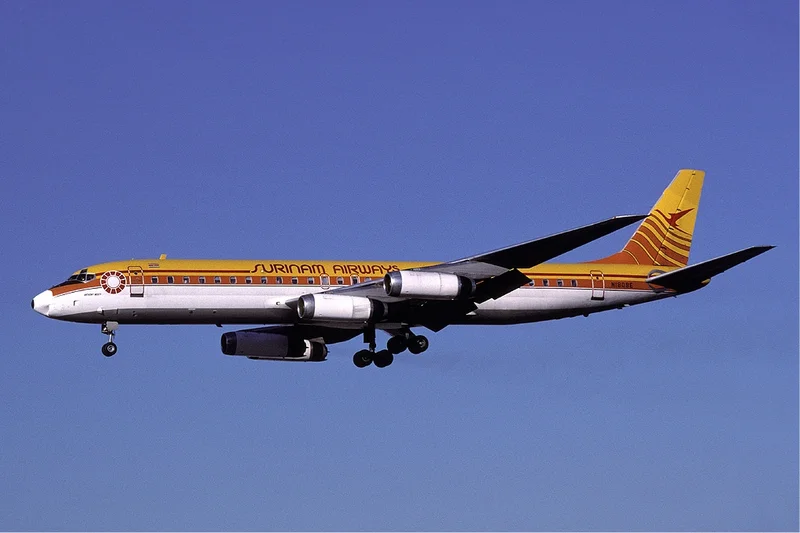
Surinam Airways Flight 764 crashed on approach to Paramaribo-Zanderij International Airport due to pilot error, killing 176 of 187 passengers and crew. The disaster remains one of the deadliest aviation accidents in South American history.
The crash devastated Suriname’s small population and eliminated much of the country’s intellectual elite. Investigation revealed that inadequate crew training and poor communication contributed to the tragedy.
2017 – Myanmar Air Force Aircraft Crashes
A Myanmar Air Force Shaanxi Y-8 transport aircraft crashed into the Andaman Sea near Dawei, killing all 122 people aboard. The military transport was carrying soldiers, family members, and crew on a routine flight.
Search and rescue operations recovered debris and victims from the sea. The crash highlighted safety concerns with aging military aircraft in Southeast Asian air forces.
Sports and Recreation on June 7
1927 – Archie Birkin Dies in Racing Accident
English motorcycle racer Archie Birkin died tragically at age 22, cutting short a promising career in motorsport. Birkin had shown exceptional skill and fearlessness on the racing circuit.
His death highlighted the extreme dangers faced by early motorcycle racers. Birkin’s legacy inspired improved safety measures in motorcycle racing throughout the following decades.
1939 – Thurman Munson Born

Future New York Yankees catcher Thurman Munson was born in Akron, Ohio. His childhood baseball skills quickly distinguished him from other young players in the region.
Munson would become the Yankees’ captain and a seven-time All-Star. His leadership and clutch hitting helped the team win two World Series championships in the late 1970s.
1953 – Allen Iverson Born

Basketball legend Allen Iverson entered the world in Hampton, Virginia. His early athletic abilities in both basketball and football suggested a bright future in professional sports.
Iverson would revolutionize NBA basketball with his explosive style and fearless attitude. Despite his small stature, he became one of the league’s most dominant scorers and cultural icons.
Notable Births on June 7
1958 – Prince Born
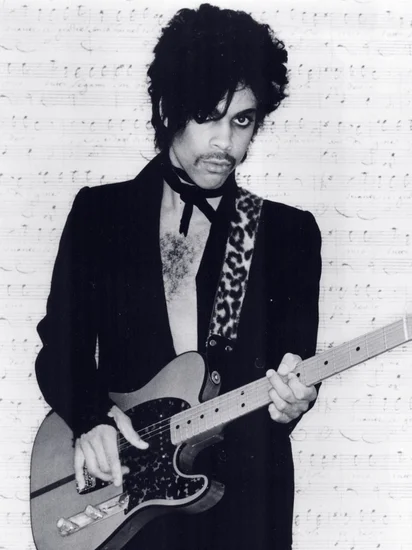
Prince Rogers Nelson was born in Minneapolis, Minnesota, destined to become one of music’s most innovative and influential artists. His early exposure to music through his father’s jazz band shaped his musical development.
Prince would revolutionize popular music with his genre-blending style and prolific output. His Purple Rain album and film established him as a global superstar and cultural icon.
1940 – Tom Jones Born

Welsh singer Tom Jones entered the world in Pontypridd, Wales. His powerful voice and charismatic stage presence would make him an international entertainment sensation.
Jones became famous for his dynamic performances and distinctive vocal style. His hits like “It’s Not Unusual” and “What’s New Pussycat” made him a beloved figure in popular music.
1952 – Liam Neeson Born

Irish actor Liam Neeson was born in Ballymena, Northern Ireland. His imposing physical presence and dramatic training prepared him for a distinguished acting career.
Neeson gained international recognition for his role in “Schindler’s List” and later became an action star. His performances in films like “Taken” introduced him to new generations of moviegoers.
1959 – Mike Pence Born
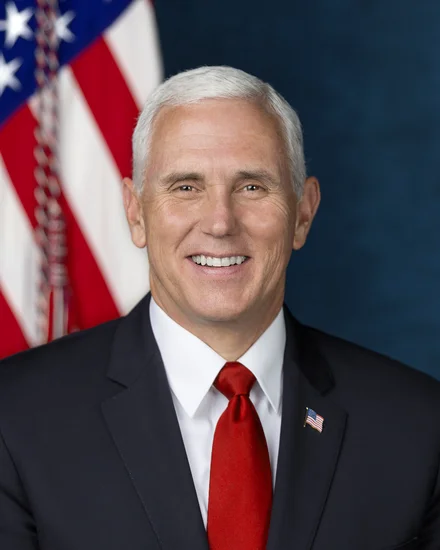
Michael Richard Pence was born in Columbus, Indiana, beginning a journey that would lead to the highest levels of American government. His early interest in politics and law shaped his future career path.
Pence served as Indiana’s governor before becoming the 48th Vice President of the United States. His conservative political philosophy and evangelical faith influenced his policy positions throughout his career.
1974 – Bear Grylls Born

Edward Michael Grylls was born in Donaghadee, Northern Ireland, destined to become the world’s most famous survival expert. His adventurous spirit emerged early in his childhood.
Grylls became a global television personality through his survival shows and outdoor adventures. His extreme expeditions and survival techniques inspired millions to embrace outdoor challenges.
1978 – Bill Hader Born

William Thomas Hader Jr. was born in Tulsa, Oklahoma, showing early signs of the comedic talent that would make him famous. His childhood interest in comedy and filmmaking predicted his future success.
Hader became a star on “Saturday Night Live” and later created the acclaimed series “Barry.” His versatility as both a comedian and dramatic actor earned him critical acclaim and Emmy awards.
Notable Deaths on June 7
1937 – Jean Harlow Dies

Hollywood star Jean Harlow died at the tragically young age of 26, ending one of cinema’s most meteoric careers. The platinum blonde actress had become synonymous with glamour and sex appeal in 1930s films.
Harlow’s death from kidney failure shocked the entertainment industry and her millions of fans. Her brief but brilliant career established her as one of cinema’s first major sex symbols.
1970 – E.M. Forster Dies
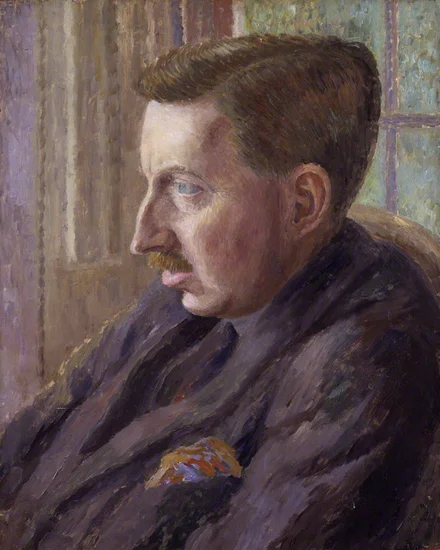
English novelist E.M. Forster passed away at age 91, concluding a literary career that spanned the 20th century. His novels explored themes of class, sexuality, and human connection with remarkable insight.
Forster’s works including “A Room with a View” and “Howards End” became classics of English literature. His famous directive to “only connect” captured his humanistic philosophy and literary approach.
1980 – Henry Miller Dies

American novelist Henry Miller died at age 88, leaving behind a controversial but influential body of work. His autobiographical novels challenged conventional morality and literary standards.
Miller’s “Tropic of Cancer” and other works faced censorship battles that helped establish greater freedom of expression. His frank treatment of sexuality and unconventional lifestyle influenced generations of writers.
1992 – Bill France Sr. Dies
NASCAR co-founder Bill France Sr. passed away at age 82, ending his remarkable career in motorsports promotion. His vision transformed stock car racing from a regional sport into a national phenomenon.
France’s leadership established NASCAR as America’s premier racing organization. His business acumen and promotional skills helped create the modern era of professional stock car racing.
2015 – Christopher Lee Dies

English actor Christopher Lee died at age 93, concluding one of cinema’s most prolific and memorable careers. His towering presence and distinctive voice made him an iconic figure in horror and fantasy films.
Lee’s portrayal of Dracula defined the vampire character for generations of moviegoers. His later work in “The Lord of the Rings” trilogy introduced him to new audiences worldwide.
Holidays and Observances on June 7
Union Dissolution Day – Independence Day of Norway
Norway celebrates its independence from Sweden with Union Dissolution Day, commemorating the 1905 parliamentary vote that ended the political union. The holiday reflects Norwegian national pride and the peaceful achievement of sovereignty.
Citizens participate in parades, cultural events, and patriotic celebrations throughout the country. The observance highlights Norway’s successful transition to full independence through democratic means.
Sette Giugno – Malta
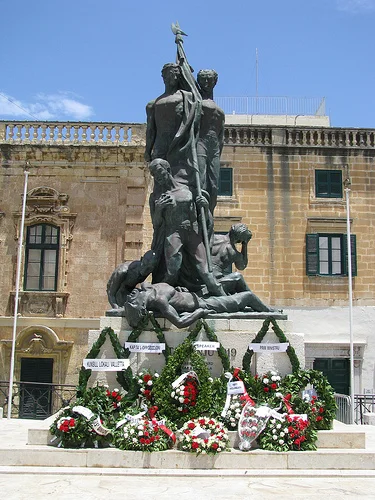
Malta observes Sette Giugno, remembering the 1919 riots that marked a turning point in the island’s struggle for independence from British rule. The day honors the four Maltese civilians killed during the protests.
The observance includes memorial services and historical exhibitions about Malta’s path to independence. Schools and government offices close as the nation reflects on this pivotal moment in Maltese history.
Flag Day – Peru
Peru celebrates Flag Day, honoring the national symbol that represents the country’s independence and sovereignty. The observance includes flag-raising ceremonies and patriotic displays throughout the nation.
Educational institutions conduct special programs teaching students about the flag’s history and significance. The celebration reinforces Peruvian national identity and pride in the country’s heritage.
Journalist Day – Argentina

Argentina recognizes Journalist Day, celebrating the vital role of journalism in democratic society. The observance honors reporters, editors, and media professionals who inform the public and hold power accountable.
News organizations host special events and award ceremonies recognizing excellence in journalism. The day emphasizes the importance of press freedom and responsible reporting in Argentine society.
